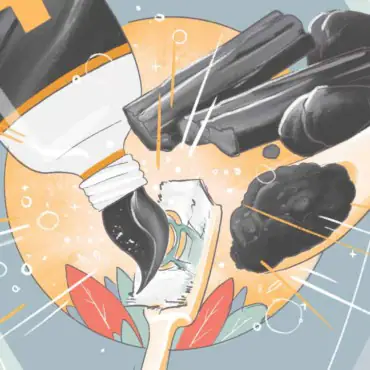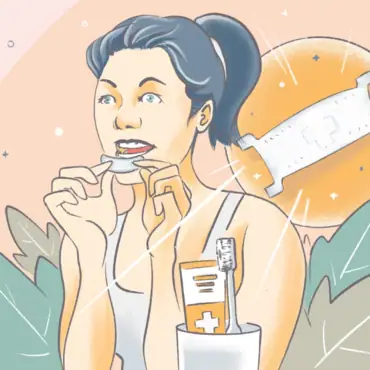Wisdom teeth are notorious for being stubborn and troublesome whether they are in the mouth erupting or at the dentist’s office being extracted. Due to the skeletal evolution of our skulls over centuries, most of us no longer have the arch space for all four of these third molars to erupt. When there is a lack of such space in the oral cavity, wisdom teeth can cause a range of problems, including swollen gums, infection, facial swelling, damage to other teeth, and even jaw joint issues.
Being the last of the molars and the last to erupt, complications due to wisdom teeth are fairly common. They can even cause tooth movement, oftentimes reversing previously received or ongoing orthodontic treatment. Therefore, when a dentist says these teeth need to be removed, there’s just no other way.
Despite the reputation of how painful and terrible recovery post- oral surgery can be, in most cases, the cause of such stress is due to the negligence of after-care and unawareness of how to manage the open extraction site properly.
So we’ve compiled a comprehensive list of 10 things you must do for recovery, proven by facts, experience, and statistics. If you want to learn how to avoid post-surgery complications and reduce post-operative pain upon removal of wisdom teeth, continue reading the instruction list below.
Don’t Spit
Immediately after the removal of a wisdom tooth, blood and saliva may pool in the mouth. Simultaneously, the body’s defense system forms a blood clot as a plug in the extraction site to stop the bleeding and begin healing. Removing blood/saliva from your mouth has to be done with utmost care, making sure that there is no spitting force that would potentially create a vacuum in the mouth that could dislodge the healing blood clot. The recommended way to do so is by opening your mouth slightly over a sink and letting the blood/saliva flow out while tilting your head forward. Creating a suction pressure in the mouth and dislodging the naturally occurring blood clot in the extraction area can cause painful complications such as a dry socket
Do Not Use Straws
As explained above, preserving the blood clot is of utmost importance; another way to ensure that it remains intact is by avoiding the use of straws after the procedure until healing has occurred. The use of straws, just like spitting, creates a suction pressure in the mouth that should be avoided.
Eat Soft and Slightly Cold Food
Post-surgery it is recommended not to have anything very hot or very cold at least in the first 24 hours after the extraction. Most dentists recommend slightly melted ice cream for a cooling effect after a same-day wisdom tooth extraction. In general, food items that are soft and slightly cold, requiring very minimal chewing forces, are considered best to consume. Some examples of acceptable food are:
- Yogurt
- Mashed Potatoes and Vegetables
- Soup (warm but not hot)
- Pudding
- Bananas
- Soft bread
- Applesauce
- Porridge
Due for a checkup?
Find a top rated dentist near you that takes your insurance.
While chewing, attempts should be made to try and chew on the opposite side of the mouth from the extraction site, It’s important to be mindful to chew carefully so as not to bite your cheek or lip that may still be numb from anesthesia shortly after the procedure. It is also advised to avoid any hot drinks such as coffee and tea for the first 24 hours; however, they can be taken warm. Ideally, the soft diet should be continued for at least 48 hours after surgery.
Use Warm Saltwater Rinses
After 24 hours have passed since the extraction procedure, you should now begin saltwater rinses. The way to do this is by warming up a cup of tap water and adding a levelled teaspoon of salt and stirring it into the water. Rinse gently with the salt solution, holding it in the mouth for a minute and swishing it around. Saltwater rinses help curb infections, stop food from lodging in areas where brushing with a toothbrush may not be possible, provide relief to inflamed tissues in the mouth, and help ease the gums by promoting quicker healing. You should do this at least 3 to 4 times a day for about a week, especially after meals.
Avoid Smoking and Alcohol
Smoking and alcohol should be off-limits on the day of and for 24 hours post-surgery. Smoking reduces blood circulation which can, in turn, affect healing. The smoke itself in the mouth can trigger and delay wound healing, possibly leading to infections if a blood clot has been dislodged or not formed yet. Alcohol is also discouraged, as its negative effect on the wound site can also lead to complications, including infections.
Take Your Medication on Time
One of the best ways to manage inevitable wisdom teeth removal pain and discomfort is by timely taking your prescribed medicines, on schedule. Taking painkillers at the right time ensures the therapeutic effect of stays consistent and stable, providing the best way to manage your pain. Following the routine allows a more efficient therapeutic effect and minimal distress.
We reward you for going to your dental checkup!
Ice the Area
Icing the affected cheek area with an ice pack has been reported to manage inflammation, pain, and sometimes swelling. Care should be taken to moderately manage icing times and durations and to avoid ice packs completely if you have cold intolerance or hypersensitivity.
Sleep with Your Head Elevated
To avoid the pooling of blood in the missing wisdom tooth area, it is advised to sleep with your head elevated for the first few nights after the procedure. Not doing so could cause the wound to throb and result in discomfort.
Avoid Strenuous Exercise
The American Dental Association (ADA) recommends limiting strenuous activity for at least 24 hours after the extraction procedure to reduce chances of post-surgery bleeding and to minimize chances of blood clot dislodgment.
Don’t Miss Your Checkup Appointment
It is important to review and follow up with your dental practitioner at the time appointed to you, especially if you have had any stitches placed so they can be removed. You should visit your dentist earlier if you notice heavy bleeding, increased pain after surgery, foul taste or odor in the mouth, and fever during the recovery period.
Give $50, get $50.
Refer someone to book a dentist with Opencare and you’ll both get $50.
Better Care Begins with Awareness
Knowing how to take care of your extraction site is the first step in proper management. All steps and efforts should be taken to follow your dental practitioner’s medical advice diligently and to practice methods that will promote faster healing. Straying from these instructions can come at the cost of a post-surgery infection or a hemorrhage which would further complicate and delay healing, not to mention increase pain and discomfort. Being careful and diligently following care instructions ensures quick recovery!
Dr. Hanaa Nasir is a dental professional who has worked for a well-recognized dental hospital in Pakistan, and is in the process of attaining her further education from Australia. Having graduated with honors, she is currently pursuing her Masters in Oral Surgery. Still in the early process of research based on Psychology and Dentistry, she aims to broaden dental care, and advocate for it to be integrated with mental health. Dr. Nasir dedicates most of her time to science and medicine, balancing it with her love of poetry and art. She is a regular contributor to the Rockwest Dental Clinic.







